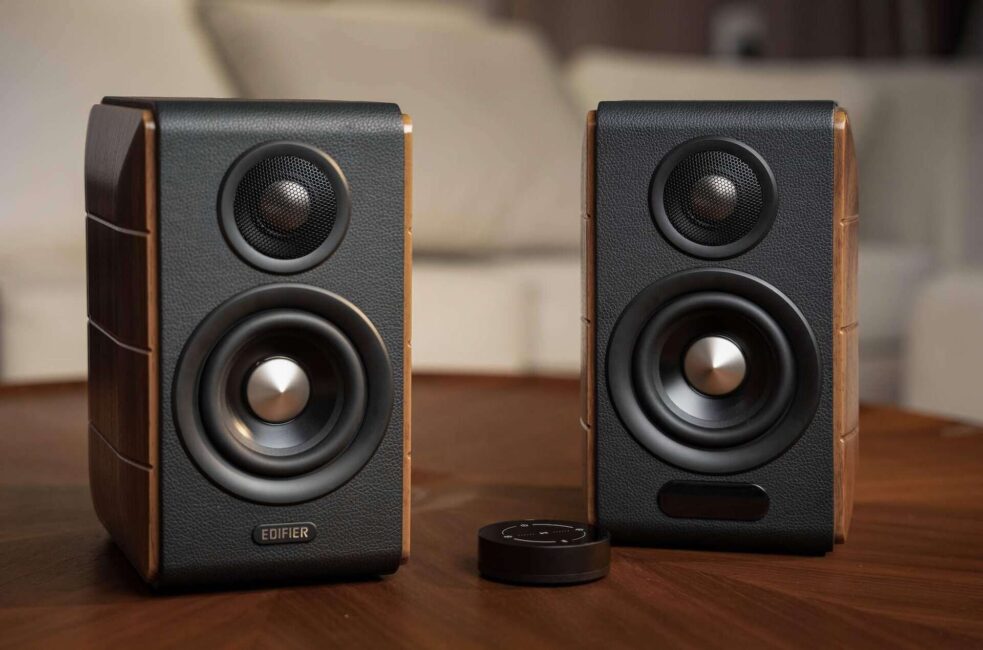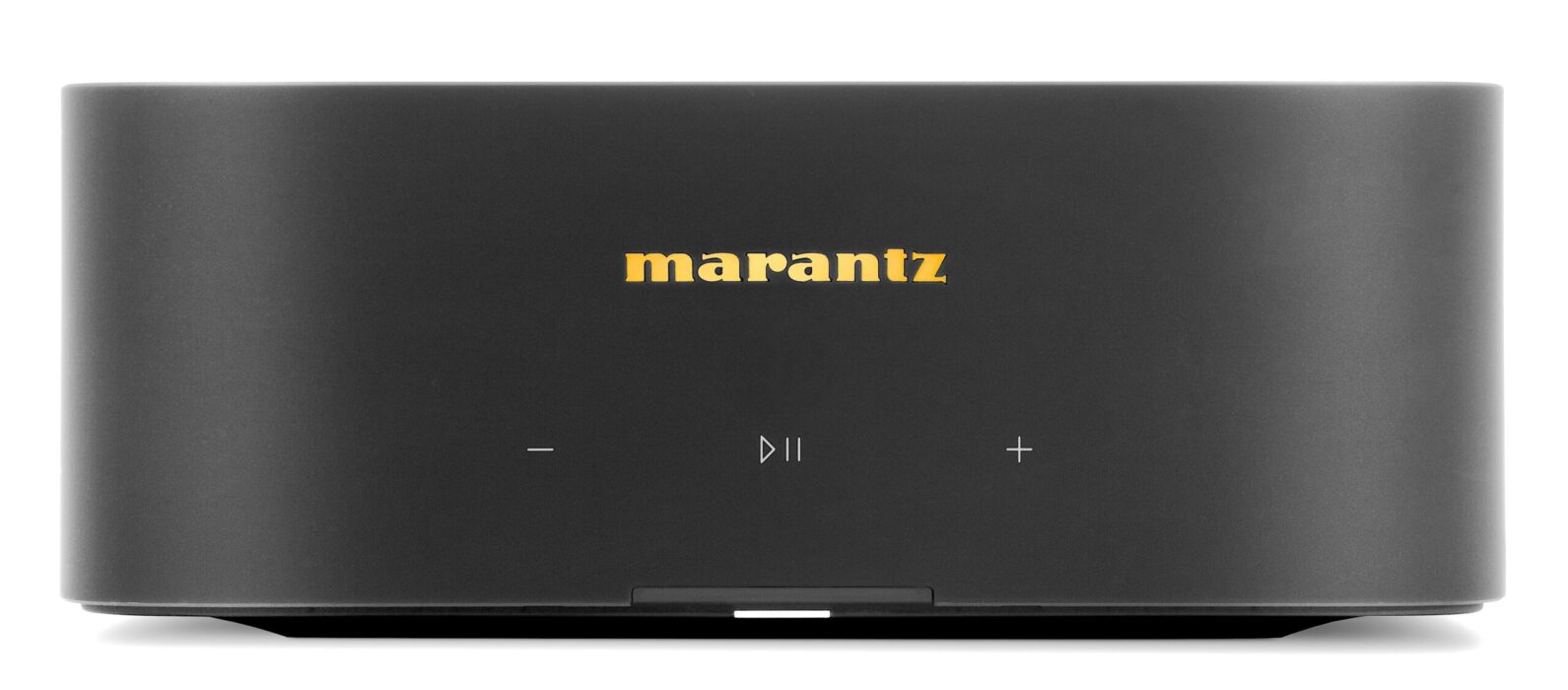The Article
Model 1701 Power Amplifier From Ovation
20th September 2018

If you need to marry some power to your Pre, Paul Rigby may have the answer as he reviews the Model 1701 100W Current Mode Topology, Class AB power amplifier from Ovation High Fidelity
Some technologies work best as social animals. Cars, for example… computers too. Both work well with components clamped, cheek by jowl, with each other or, at best, in very close proximity. Not Hi-Fi. Despite the fact that Hi-Fi is replete with products whose chassis is packed to the gills with ‘stuff’, hi-fi is actually the Clint Eastwood of the technology world. It’s a loner. That is, separate components from each other, make sure there’s some distance between each component and the sound improves. There’s a host of reasons for this but, in general terms, it boil down to this: distance reduces noise (of all types) contaminating hi-fi bits and bobs. This is why phono amplifiers work best on their own and not as part of an integrated amplifier or in a turntable, why DACs work best when separated from a CD transport and why an amplifier works better when separated into a pre-amp and a power amp instead of an integrated amplifier.
Ovation thinks the same, which is why it’s offering this Class AB power amplifier for your delectation.
It’s a meaty beast too with a custom-wound 500W power supply that incorporates an inter-winding screen and a flux band to keep mains noise down, “Short term loudspeaker current demands in excess of 20A per channel are easily supported by means of an output stage that employs six matched 250W power transistors per channel,” said designer, Andrew Russell. “A large reservoir capacitor bank, rated at 15% above the highest expected mains voltage, provides huge instantaneous energy reserves that underpin the dynamic performance of this amplifier.”
Protection circuitry monitors the amplifier for DC offsets and overcurrent situations, which if arising, will result in the speakers being instantly disconnected from the amplifier output. Connection between the amplifier output and the speaker terminals is by means of a solid-state relay using, “…ultra-low Rds(on) ‘Trench’ technology MOFET’s with a 200 J energy handling capability,” said Russell. “These devices operate at 5-10x the speed and 10x lower ON resistances of the conventional electro-magnetic relays (EMR) used by our competitors.”
The Model 1701 can accept balanced or single ended inputs which are selected via a white, push-button switch located on the rear of the unit. This unit also acts as a useful mute button in operation. That is, if you are using singled ended cables, switch it to balanced to mute.
The aluminium chassis features side-mounted cooling vents.
Connection to the speakers uses WBT shrouded connectors, that can simultaneously accept 4mm banana plugs and/or 6mm spade lugs. A power swtich is resident on the front fascia.
SOUND QUALITY
I began in single-ended mode, using my reference RCA cables and took a rock-centric music approach and the Beatles’ Lucy in the Sky with Diamonds parody via the self-titled album from The Rutles and the track, Good Times Roll. Incidentally, although being a Beatles’ fan helps, this is an album of quite superb songs that actually stand up all on their own. But back to the plot.
First impression? The Model 1701 offered one of the most mature and confidant musical reproduction experiences I have had for quite a while from any amplifier under review. It was that good.
First up, the amp did all of the basics right. You’ve got to start here because if you immediately hear boomy bass or bright mids then you’re always playing catch-up. Not here. This amp took its time, made sure it set itself properly and took a deep breath before it even moved to the first note. A responsible amp. An amp to take home to meet your mother, you might say.
Of course, avoiding tizzy and pinched treble and bass bloom is just the beginning, from this point onwards, the ambition of any amplifier shows itself and I was very pleased to see that the inherent design was one of low noise. The quality of the internal design was reflected by the sonic canvas. That is, the place the music emerged from because that’s all I heard here, music. At no time did the amplifier bring any noisy friends to damp or swamp detail. Hence, clarity was present in buckets while midrange transparent was a delight.
Examples? Cymbal tapping was precise with transients to die for while a ride cymbal actually sounded like a ride cymbal and not like someone throwing a big piece of metal at a garage wall.
Electric guitar sounded infused with electricity so an initial string pluck was infused with power. It offered tonality but also weight.
The instrumental separation also meant that each musician could be followed and tracked without any effort, the vocal providing emotive resonance but also plenty of understated detail.
Bass, meanwhile offered plenty of power – drums thundered when required and offered throbbing potential at other times.
So, you might say that the Model 1701 started fairly well then! I changed from RCA plugs to balanced cables, supplied by the company. Same music, though.
In balanced mode, there is much more air and space that inhabits the soundstage but I best heard that with a pair of quality balanced cables from, in this case, Tellurium Q which enhanced the performance over and above the admirable cables supplied to me by Ovation. If you’re going to go balanced, seriously consider an outlay for specialist balanced cables to fully experience the effect.
Enhancements included a multi-layered effect in and around the soundstage with that self-same soundstage being pushed backwards to add to the 3D imagery. Transients were further enhanced but reverb was too, giving extra life to all instruments but especially cymbals and piano. Vocals meanwhile offered enhanced accuracy, diction was exacting but also responsive to the instruments.
So the balanced option is the best then? Not for me, no. Despite the sonic highlights brought to the fore via the balanced connection, I actually preferred the slightly smoother output from the single-ended option. Balanced is a super alternative for those looking for clarity combined with precision and extra focus but I thought the mids on the balanced slightly too etched for my taste and fell back to the neutral tones from the single-ended option. But that’s fine. There’s no criticism aimed at the balanced option. The choice is purely one of taste. It’s like receiving two amps in one. A good thing.
CONCLUSION
Well designed, the Model 1701 power amplifier reeks of value for money for those readers who are madly in love with music. That is, the prosaic design shouts that your money has been invested in the gubbins inside the case. Hence, every ounce of design effort has been committed to improving sound and not chrome fixings or funky cooling fans CNCd into the shape of a cuddly toy. Oh no, Ovation has its priorities right here. This is a power amp targeted at the music fan. Listening to this power amplifier, I can tell any music fan out there that they will have a fine time with this particular amp. Oh yes, a fine time indeed.
OVATION HIGH FIDELITY MODEL 1701 POWER AMPLIFIER
Price: £2,999
Website: www.ovationhifidelity.com
GOOD: cultured midrange, portentous bass, low noise, single-ended and balanced performance, value for money
BAD: nothing
RATING: 8
[Don’t forget to check out my Facebook Group, The Audiophile Man: Hi-Fi & Music here: www.facebook.com/groups/theaudiophileman for exclusive postings, exclusive editorial and more!]
REFERENCE
Origin Live Sovereign turntable
Origin Live Enterprise 12″ arm
Van Den Hul Crimson XGW Stradivarius cartridge
Icon PS3 phono amplifier
Aesthetix Calypso pre-amp
Icon Audio MB845 Mk.II monoblock amplifiers
Quad ESL-57 speakers with One Thing upgrade
Vertex AQ, Gekko, Black Rhodium & Tellurium Q cable
Blue Horizon Professional Rack System
Harmonic Resolution Systems Noise Reduction Components
All vinyl was cleaned using an Audio Desk’s Ultrasonic Pro Vinyl Cleaner













